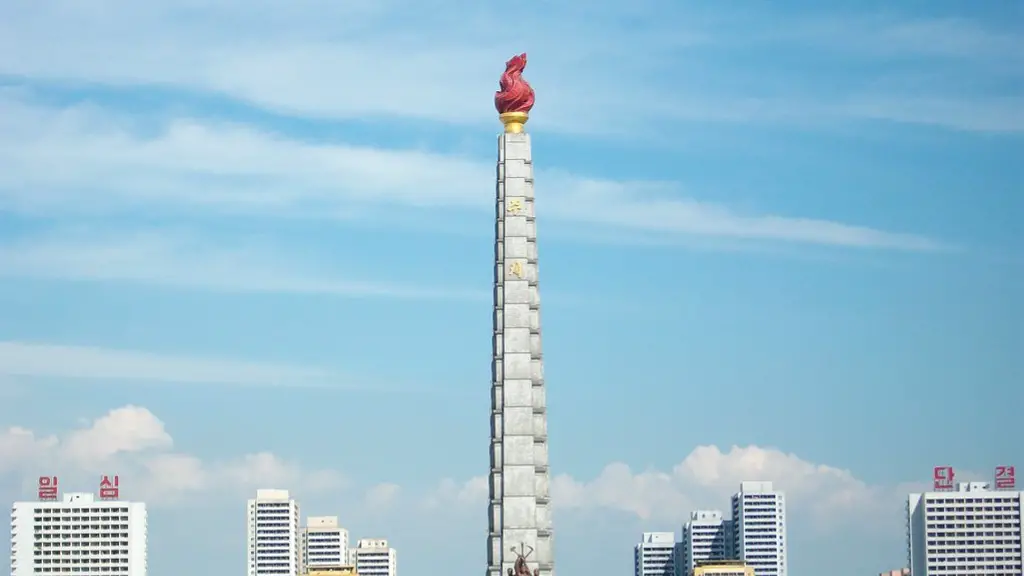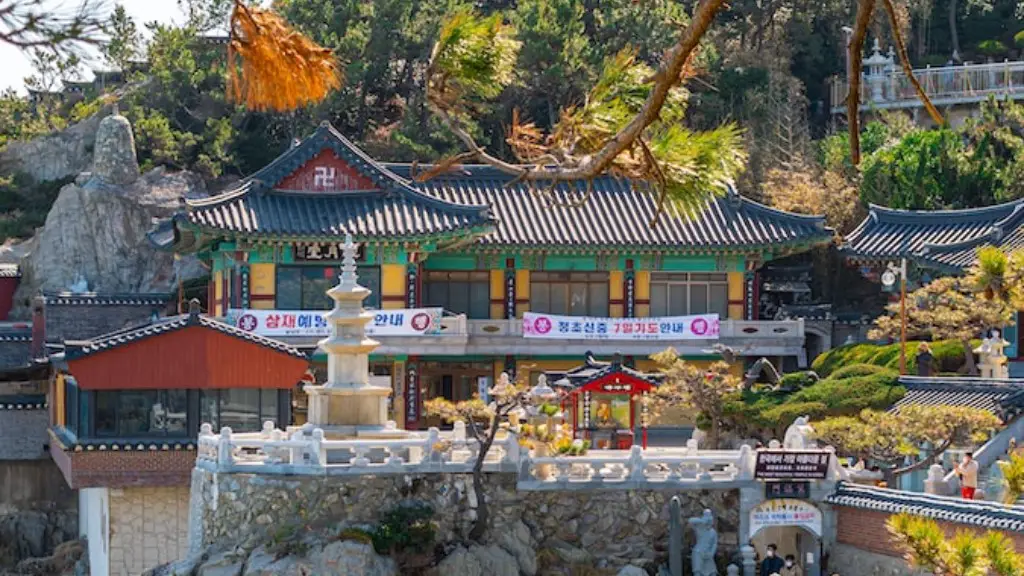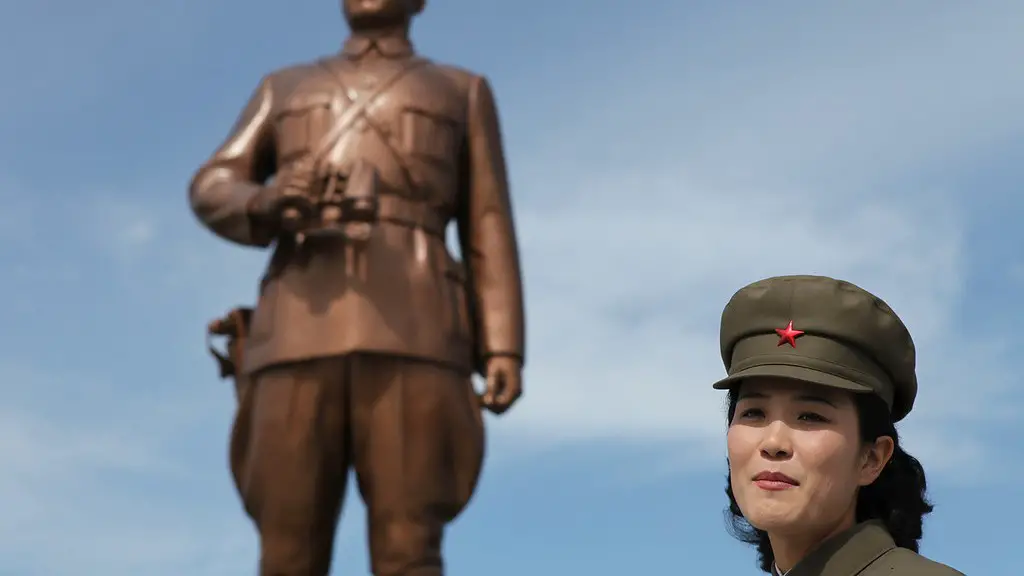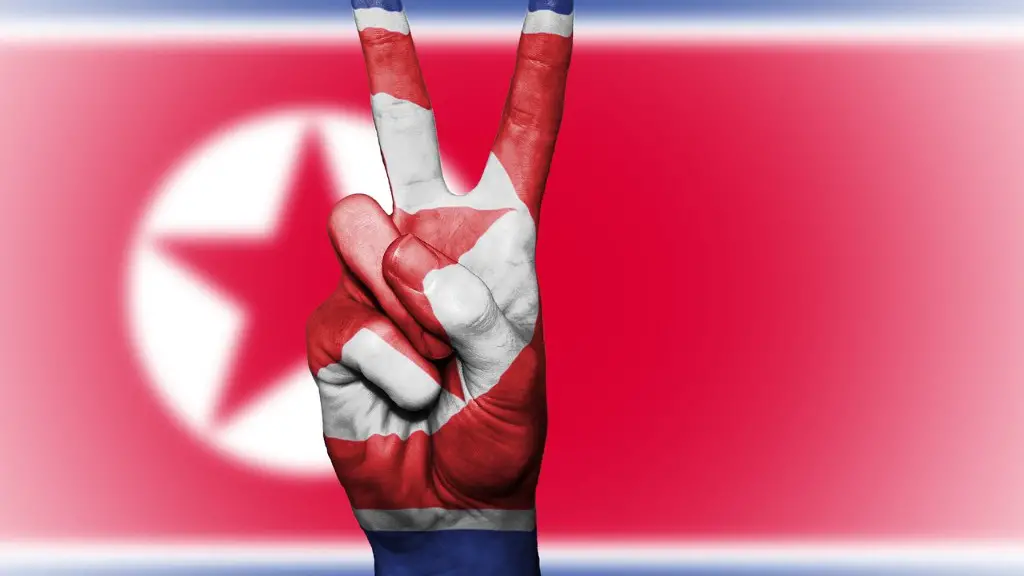In 1945, a divided Korea emerged from the ashes of World War Two with the country divided into North and South at the 38th parallel. This one-time arbitrary line would come to define the Korean Peninsula and the two Korean countries. As a result, North Korea and South Korea are enemies with an ever so complex history and an array of political issues that prevent unification. Fostered by a sense of hate, fear and distrust, the two sides have remained enemies since the Korean War in 1950.
Political differences are a key source of friction between North and South. Both countries have drastically different governments – South Korea operates as a democratic republic while the North is a single-party totalitarian state. This means there are quite glaring incompatibilities between the two political systems, leading to a distinct clash of ideologies. North Korea is also notorious for its human rights violations and disregard for international law and order. South Korea, on the other hand, seeks a much closer connection with the rest of the world. As former Brookings Institution analyst Bruce Klinger observed: “South Korea is also unlike North Korea in respecting fundamental human rights, rule of law and other international norms…”
The Cold War era served to increase divisions and animosity between the two countries by pitting the USA and the Soviet Union in a proxy war for power and control. This competition for territory and dominance escalated tensions as the two sides battled for control of the Korean Peninsula and capitalized upon differences in opinion to mutual gain. Fueled by the fear of Communist rule and aggression, the USA and its allies such as South Korea intensified the new-found rift between North and South. This extreme divide separated families, split up communities, and demolished the concept of Korean unity.
Much of the recent controversy surrounding the two countries has primarily centered around North Korea’s nuclear capabilities. Pyongyang’s refusal to abide by UN security resolutions and continuous commitment to the advancement of its nuclear arsenal has become a source of global concern. This constant pursuit of nuclear capability has further inflamed the mistrust and animosity between North and South. International sanctions have also served to deepen the enmity due to their direct impact on the North’s economy. As a result, North Korea has frequently criticized South Korea, accusing them of pursuing a hostile foreign policy in spite of South Korean President Moon’s push to improve relations.
Moreover, national pride and patriotism play an important role in the escalation of the rivalry between North and South. Relative to North Korea, South Korea is far wealthier, more technologically advanced and much more prominent on the international stage. With an ambitious vision for the next decade and a focus on innovation, equality and education, the South looks set to continue to increase its lead over North Korea. The North, however, shows no signs of backing down in their refusal to cooperate with international demands and will continue to seek recognition from their southern neighbor on their own terms.
The war of words between the two countries has become increasingly hostile, with both sides looking at times to outdo the other in a court of public opinion. While North Korea and South Korea are geographically close to one another, culturally and politically the two remain worlds apart. With little to no prospect of unification, the two countries are destined to remain enemies for years to come.
The Economic Dimensions of the Conflict
Economically, there are significant disparities between the two countries with North Korea facing significant financial pressures due to its isolationist stance. The North has an archaic economy heavily reliant on agricultural production, while the South is one of the major economic players in East Asia. Investment in infrastructure, education, and technology in the South has seen far more success with the GDP of South Korea growing exponentially since the Peninsula split.
Furthermore, the North faces severe trade sanctions from the United Nations due to its pursuit of nuclear weapons and other weapons of mass destruction. These have had a devastating impact on the North’s economy, dramatically reducing the flow of foreign goods and investment. This has escalated the tension between the two states, with the North’s government repeatedly vowing to take ‘all necessary measures’ to protect its citizens despite the economic difficulties.
The North has also repeatedly used economic measures to pressure the South into a more compliant position when it comes to relations between the two Koreas. This includes blocking transport routes, preventing trade shipments, and potentially using tourism as a political tool to influence South Korean policy. Furthermore, the so-called ‘May 24 sanctions’ imposed by the North in 2010 dramatically reduced its ties with the South, with the two Koreas effectively becoming estranged.
The economic disparity between North and South highlights further the stark rifts and differences between the two Koreans states. The possibility of diminishing economic pressures and creating prosperous opportunities zone between the two to bridge the two entities together will be difficult at best.
Cultural Divide
Korea has a long standing and shared cultural heritage but the two countries have become vastly different in this regard. Art, music and literature from North and South differ dramatically. North Korea is heavily censorship with religion outlawed and political dissent punishable by death. The North’s media outlets also focus heavily on loyalty to the ruling party as well as Kim Jong-Un.
In contrast, South Korea operates a multi-party democratic government with freedom of speech and religion being observed by law. Self-expression through art is valued and the range of popular culture expands widely. South Korea has also developed and maintained a distinct national identity, separating itself further from its northern brother.
Through the early 2000s, there were brief moments of hope for diplomatic relations between the two states — often dubbed ‘the Sunshine Policy’ — but these were quickly dashed. Subsequently, trust has become scarce, with both sides retaining a cautious stance when it comes to negotiations and dialogue. Consequently, the cultural divide has only intensified with each side advancing its own interpretation of shared history.
Even joint festivals and events held to foster peace and discussion between the two countries have proven to be difficult to step away from mutually different idologies. North and South try to put up a united front but the reality is far different. The cultural divide between the two countries became particularly evident at the Pyongyang Joint Declaration of 2005, with North Korea’s top envoy walking out on the opening ceremony.
Geo-Political Undertones
North and South Korea have also had to contend with a range of geopolitical issues that have wedged open the divide betweens the two countries. In particular, North Korea has been strongly associated with China and Russia. China remains North Korea’s strongest ally, providing the country with economic assistance and military support. As a result, South Korea remains in an intense power struggle with the two countries over their shared border.
The US is also heavily involved in the conflict between North and South Korea. The US has historically sought to utilize South Korea for their own geo-strategic interests in the region. However, uncertainty now looms over the US’s commitment towards the South, with President Trump repeatedly voicing his skepticism over the partnership. This has led to increasing concern both in South Korea and abroad over the US’s willingness to defend the South in the face of a potential attack from the North.
Despite the growing insecurity, South Korea has made efforts to engage with North Korea diplomatically, pursuing a more relaxed approach than in years passed. South Korean President Moon Jae-in has sought to foster trust between the two states, despite little to no improvement thus far. His predecessor, President Park, imposed several sanctions upon the North and championed a much tougher stance against Pyongyang. This more aggressive stance was met with heavy criticism from North Korea, making it extremely difficult to break away from a cycle of escalations and recriminations.
The Humanitarian Dimensions
The conflict between North and South Korea also has devastating humanitarian implications. This is particularly true for the many families separated by the Peninsula’s division. Thousands of families have been separated from one another, with experts estimating that close to 600,000 families remain separated due to the indefinite political status of the Korean Peninsula.
Ongoing hostility between the two states has also brewed a mistrust and fear that have become deeply embedded in the society. Beyond this, there is also a financial burden upon the state, as the total cost of reunification is estimated to be around $90-150 trillion, with South Korea predicted to bear the majority of the cost.
The issue of refugees is also worrying, with thousands of North Koreans risking their lives to seek a better future in the south. This has brought its own set of issues and challenges, with the South Korean government struggling to accommodate those fleeing the oppressive regime. This has created further tension between the two, especially as the DPRK has sought to pressure South Korea into curbing the flow of refugees.
Conclusion
It is clear that the conflict between North and South Korea is deeply entrenched in a long and complex history of geopolitical, economic and cultural differences. Several outside factors have played a role in exacerbating the rift between the two and it will undoubtedly take a considerable effort from both sides to improve relations. The humanitarian situation on the Korean Peninsula is also of grave concern and the two countries must address this challenge and work together for the good of their people.





